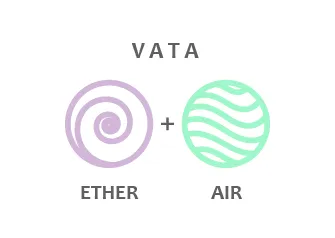SCIENCE OF AYURVEDA
The Ayurvedic system has stood the test of time because its foundational principles hold true throughout the generations. Ayurvedic philosophy teaches its students a set of ideas about the relationship between health and sickness, equilibrium and discord. It teaches that a person's physical health is directly related to the state of their mind and spirit and that any discord between the two may lead to illness. Therefore, health requires congruence among one's intention for healing, and one's thoughts, emotions, and actions.
According to Ayurveda, the key to living a happy and healthy life is to strike a balance between the needs of your body and the needs of nature and your surroundings. Ayurvedic science's purview extends well beyond the realm of mainstream science, not only to the realm of medicine. Herbal medicine, body works, and surgery are all a part of it, along with the more obvious aspects of human existence such as social, psychological, ethical, spiritual, and intellectual development.
BASIC PRINCIPLES OF AYURVEDA
- The human being is both a microcosm and a macrocosm (the Universe).
- The cadence of Earth's existence is inextricably linked to the beat of the Universe.
- The condition is caused by a poor diet and an unhealthy lifestyle. Ignoring one's specific body type, surroundings, and age disrupts the body's balance, resulting in a loss of power, health, and immunity.
- One can obtain perfect health and live for more than 100 years by achieving the ideal equilibrium between the inner and outward bodies.
- The human body is capable of self-healing.
HOW AYURVEDA WORKS
According to Ayurveda, every person has a unique mind-body type referred to as "doshas," which are regulated by the five elements of nature: Ether, Air, Fire, Water, and Earth. The three primary doshas in our body are Vata, Pitta, and Kapha. A state of perfect balance among these doshas indicates a healthy state of being. However, imbalances caused by dehydration, anxiety, stress, low energy, or excessive exertion can lead to an unbalanced state of body and mind, similar to a virus. Therefore, Ayurveda aims to maintain and improve overall health holistically, regardless of a person's age.

THREE DOSHAS IN AYURVEDA
While we are made up of all five elements, certain components have been demonstrated to be capable of mixing and so producing a wide range of physiological functions. In Ayurveda, we look at these functions as well as the impact of the five basic components, which are divided into three Doshas: Vata, Pitta, and Kapha.
VATA
The Ayurvedic mind-body aspect connected with air and space is vata dosha. It is light, cold, and dry in nature, and it regulates all movement and functions in your mind and body, including blood flow, excretion, breathing, and thinking movement.

The symptoms of Vata dosha
- Dry skin, hair, lips, ears, and joints
- Bloating, gas, constipation, dehydration, and weight loss are caused by dryness surrounding internal systems.
- Feeling dizzy and agitated.
- Exceptionally cold.
- Muscle spasms, tightness, and unexplained pains.
- Skin and lip roughness.
- Excessive agitation, anxiety, fidgeting, muscular twitching, palpitations, and restlessness.
- Weight loss and inability to gain weight.
- Insomnia or disturbed sleep.
PITTA
Pitta is the Ayurvedic kind. Pitta basically translates as "fire." The phrase, however, does not refer to fire in the literal sense, as you may experience or sense it as candlelight or an open fire. Pitta dosha, the body's heat energy, is imperceptible. It can be shown in your metabolism.

The symptoms of Pitta dosha
- Dry skin, hair, lips, ears, and joints
- Excessive heat production in the body.
- Acid reflux, gas, and indigestion are all symptoms of indigestion.
- Joint inflammatory disease.
- Constipation, diarrhoea, or nausea.
- Angry and irritable.
- Poor breath.
- Odour on the body.
- Sweating excessively.
KAPHA
Kapha is centred on earth and water. It is consistent, stable, large, weak, cold and soft. Spring is referred to as the Kapha season since many different areas of the planet gradually emerge from hibernation. This dosha is associated with being powerful, thick-boned, and compassionate.

The symptoms of Kapha dosha
- Mucus and body secretions in excess.
- Allergies caused by the seasons.
- The tongue has a thick, white covering.
- Constipation that is sticky and slow.
- Weight gain and difficult weight loss.
- Difficulty getting out of bed in the morning.
- Lethargy and brain fog.
- Being too emotional, complacent, or obstinate.
- A proclivity towards "emotional overeating".

